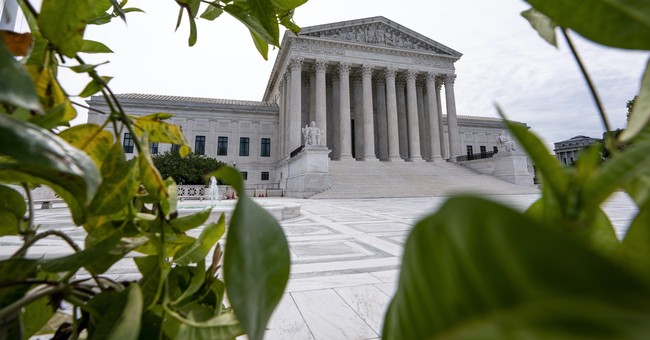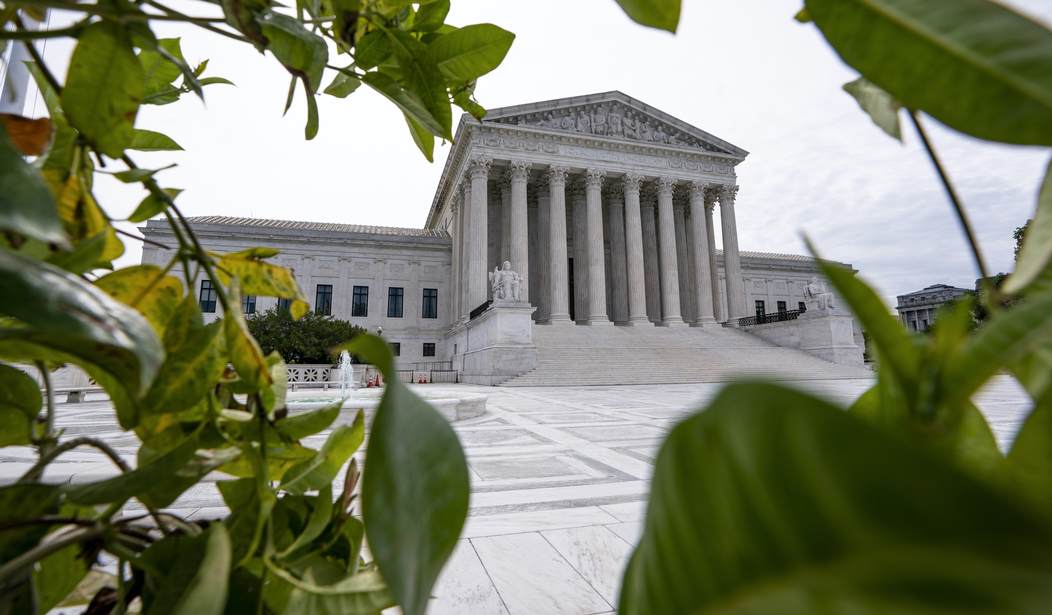
I apologize for that headline. I wrote it because I couldn’t think of another way to say it in less than 30 words. So let me go step by step where this particular case is in terms of the “procedural history” as lawyers like to call it.
A very typical lawsuit was filed in a Wisconsin federal court challenging particular aspects of Wisconsin election law. Federal District Court Judge William Conley ordered that the Nov. 3 election day deadline for receipt of Wisconsin absentee ballots be extended to Nov. 9 because … well, because four Democrat interest groups filed lawsuits asking for that relief, and like every other Obama-appointed District Court judge given the opportunity, Conley rewrote Wisconsin election law so that it was more to his liking.
How does this sound as legal reasoning and rationale:
As for the requests for preliminary relief, election workers’ and voters’ experiences during Wisconsin’s primary election in April, which took place at the outset of the COVID19 crisis, have convinced the court that some, limited relief from statutory deadlines for mail-in registration and absentee voting is again necessary to avoid an untenable impingement on Wisconsin citizens’ right to vote, including the near certainty of disenfranchising tens of thousands of voters relying on the state’s absentee ballot process. Indeed, any objective view of the record before this court leads to the inevitable conclusion that: (1) an unprecedented number of absentee ballots, which turned the predominance of in-person voting on its head in April, will again overwhelm the WEC and local officials despite their best efforts to prepare; (2) but for an extension of the deadlines for registering to vote electronically and for receipt of absentee ballots, tens of thousands of Wisconsin voters would have been disenfranchised in April; and (3) absent similar relief, will be again in November.
Now, do you understand? It’s just the right thing to do. Legal authority? Just “doing right.”
Towards that end, Judge Conley extended the period under Wisconsin law for voter registration by 7 days; gave voters notice of expanded eligibility to vote by absentee ballot; extended the deadline for receiving ballots from Nov. 3 to Nov. 9, so long as the ballot is postmarked on or before Nov. 3; blocked the Wisconsin law that allows only for delivery by mail of absentee ballots and expanded availability by email of such ballots; and prohibited enforcement of the Wisconsin statute requiring poll watchers to be residents of the county where they serve in that capacity.
It’s almost as if Judge Conley was a one-man “Super Legislature” for the people of Wisconsin, able to take on and write the entire election code by himself.
Anticipating an appeal to the Seventh Circuit Court of Appeals, Judge Conley stayed his own order for seven days, holding it would go into effect on September 28 if no stay was issued by the appeals court.
So that is how things stood on September 21, 2020.
On Sunday, September 27, a three-judge panel of the Seventh Circuit issued an emergency stay as to Judge Conley’s order, preventing it from going into effect the following day.
But on September 30, the same three-judge panel dismissed the appeal which had been filed by three parties — the Wisconsin Legislature, the Wisconsin GOP, and the Republican National Committee. The dismissal of the appeal was based on a determination by the Seventh Circuit that none of the three parties had legal “standing” to file an appeal. Neither the Wisconsin GOP nor the Republican National Committee was directed to do anything by Judge Conley’s order. While they might be “interested” in the outcome, the order did not impact the rights of either, nor did it command them to take any action.
With regard to the Wisconsin Legislature, the Seventh Circuit noted that, as a matter of Wisconsin law, it was an unresolved question as to whether the Legislature could act on behalf of the State of Wisconsin in litigation, or whether that power was reserved by Wisconsin law to the Attorney General. Because the issue was unsettled, the Appeals Court dismissed the appeal and directed the matter back to Wisconsin state courts to resolve as a matter of Wisconsin state law.
Yesterday the Wisconsin Supreme Court, acting on an expedited basis, answered the question posed by the Seventh Circuit in the “affirmative” — the Wisconsin Legislature was authorized to act as a litigant on behalf of the State of Wisconsin when the issue in dispute was defending the validity of a law passed by the legislature. Because Judge Conley’s order declared parts of the Wisconsin election code to be in violation of federal constitutional law, and therefore unenforceable for the upcoming election, the Wisconsin Legislature could challenge his ruling.
What about the Wisconsin Attorney General you might wonder. Why did he not seek to defend the Wisconsin statutes and oppose Judge Conley’s order? He’s a Democrat, elected in 2018, and serving his first term as Wisconsin Attorney General. He’s too busy helping to prosecute Kyle Rittenhouse in Kenosha.
And, prior to running for office, he worked for the notorious Democrat Party election law specialists, the Perkins Coie law firm in their Madison, Wisconsin office.
But the Wisconsin Supreme Court’s decision returns the matter to the Seventh Circuit, this time with the GOP controlled Wisconsin Legislature firmly in place as the litigant to challenge Judge Conley’s order.
Given the outcome of the Indiana case — also in the Seventh Circuit — it is quite likely that Judge Conley’s order is going to turn out to have a very short shelf-life.













Join the conversation as a VIP Member